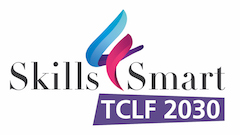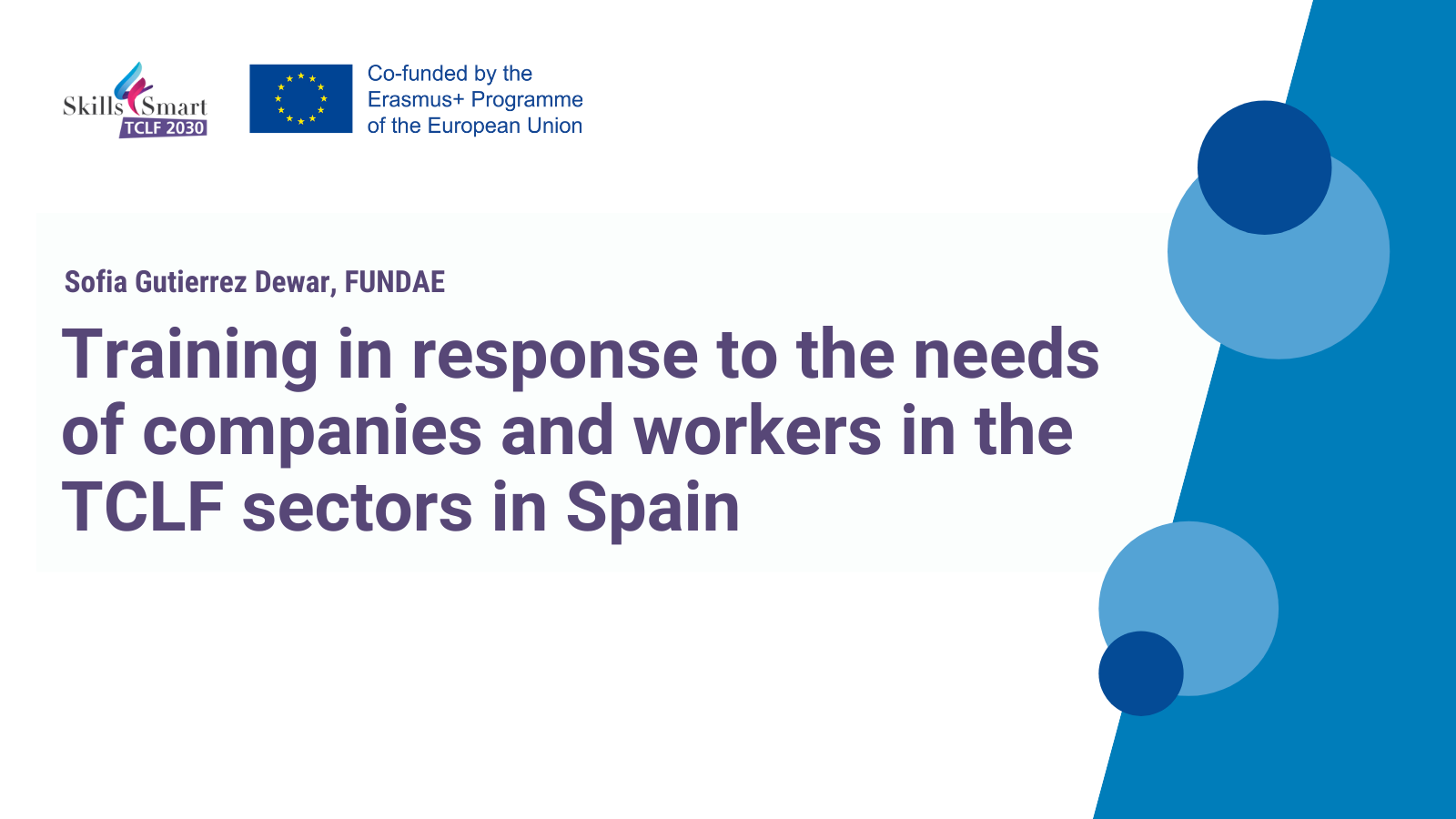To enable the recovery of the Spanish economy due to the recent health crisis, it is necessary to enhance human capital and workers´ employability.
To reach this goal improving professional skills and adjust the supply and demand of qualified workers in the labour market is the key.
The vocational training system for employment, as one of the essential parts of active employment policies, must anticipate companies´ demand. It must also offer young people and the working population in general training to fill those needs.
Social partners play an essential role in the design, planning and programming of workers´ training in the different sectors of activity in Spain. Their participation in the vocational training system for employment is carried out through the Joint Sectoral Committees (CPS, their Spanish acronym). These Committees are composed out of employers and representatives of trade union organizations in each of the different sectors of activity.
The sectoral scope of our Skills4SmartTCLF Industry 2030 project includes the following TCLF sectors of collective bargaining, each with a CPS:
- Textile and clothing industries
- Leather industry
- Footwear industry
The role of the Joint Sectoral Committees (CPS)
One of the main functions performed by the CPS is to determine each year what training is the most important within its sectoral scope. To do this, they draw up a sectoral reference plan that includes all the training courses, that may be financed through public calls for subsidies at the state level.
Once sectoral needs are identified, the next step is to incorporate these training courses, included in sectoral reference plans, into the Training Specialties Catalogue of the State Public Employment Service. The reason behind that is that the Catalogue is the common reference point for the entire training offer programmed for the employed and unemployed workers.
This catalogue is the instrument that organizes the entire formal and non-formal training offer within the framework of the Vocational Training System for employment. Its purpose is to adapt and update the offer of professional training for employment, considering the anticipation and identification of training needs.
Training programmes listed in the Catalogue are directed to areas which objective is to anticipate the qualification needs of the production system and respond to current needs in context of innovation and better job prospects.
Working together on the upskilling of the TCLF workforce
The TCLF sector Joint Committees have followed and been involved in the activities of the Skills4SmartTCLF project in Spain, especially, in the selection and definition of profiles and their training reference. For this reason, in recently established sectoral reference plans for the year 2021 they have considered the training curricula developed within the Skills4Smart TCLF project.
In reference to this, the CPS have selected the training units that respond to the most urgent training needs of employed workers in their sector in Spain. The reason to include units and not the whole profiles is that training for employed workers must be adapted to their possibilities of participation. In that sense, they cannot on average be longer than 25 to 30 hours.
The TCLF sector Joint Committees have followed and been involved in the activities of the Skills4SmartTCLF project in Spain, especially, in the selection and definition of profiles and their training reference. For this reason, in recently established sectoral reference plans for the year 2021 they have considered the training curricula developed within the Skills4Smart TCLF project.
In reference to this, the CPS have selected the training units that respond to the most urgent training needs of employed workers in their sector in Spain. The reason to include units and not the whole profiles is that training for employed workers must be adapted to their possibilities of participation. In that sense, they cannot on average be longer than 25 to 30 hours.
Textile and clothing industry CPS:
- Supply chain management in textile and clothing companies
- Process & production timeline analysis in clothing companies
- Process & production timeline analysis in textile companies
- Industrial and digital pattern maker in clothing and leather
- Digital marketing professional
- Sustainability and circularity technician in textile companies
- Textile technologist
Footwear industry CPS:
- Circular economy and sustainable development in the footwear sector
- 3D shoe design: Rhinoceros
- Industrial design and 3D printing for footwear
- CAD 3D Lasts: Rhinoceros
- CAD 3D Soles and Heels: Rhinoceros
Leather industry CPS:
- Leather processing in beamhouse operations
- Leather processing in tanning and post tanning operations
- Leather finishing operations
- Eco-materials and sustainable technology in the leather industry
Once the training courses are incorporated into the catalogue, they can be carried out throughout the state in the different published training initiatives. It will be a great opportunity for the upskilling and re-skilling of workers in the TCLF sectors.
Author: Sofia Gutierrez Dewar – Fundae


